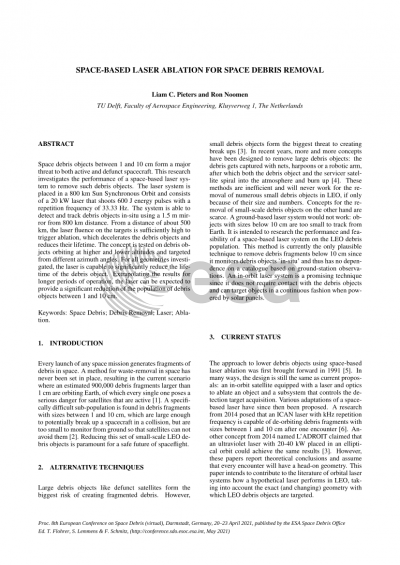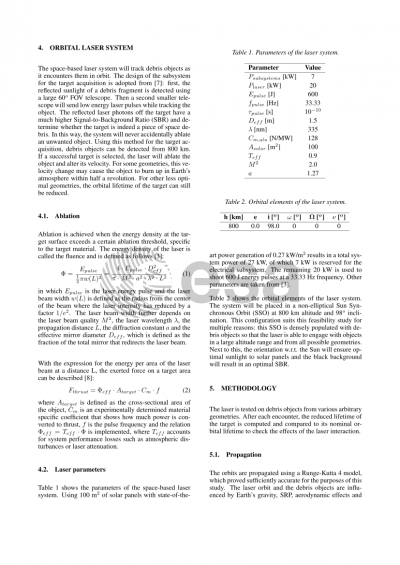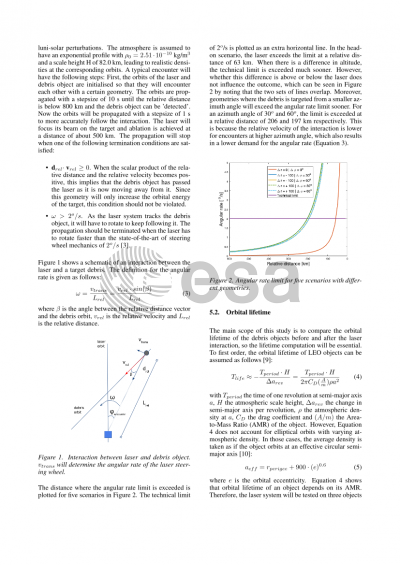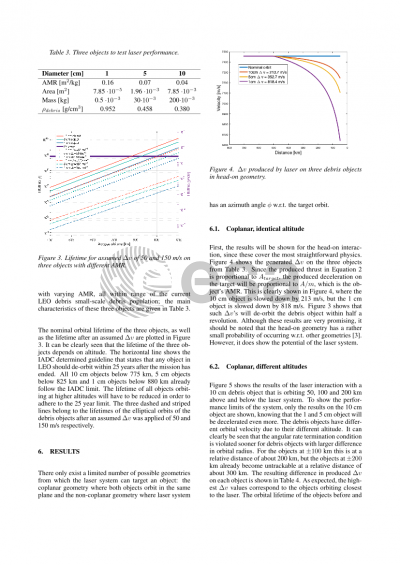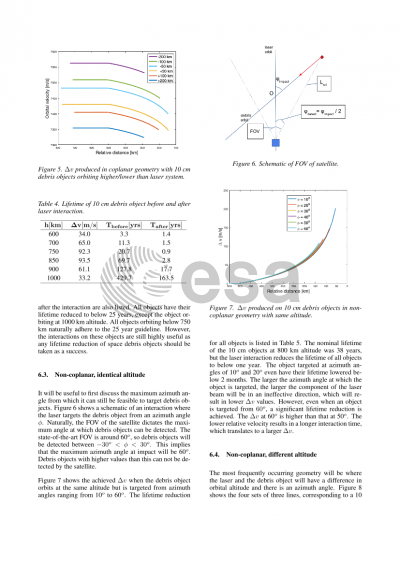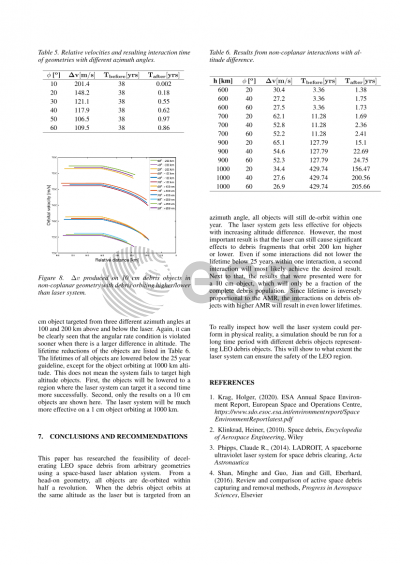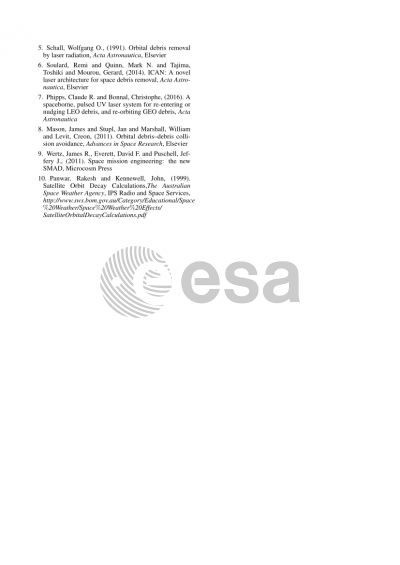Document details

Abstract
Space debris objects between 1 and 10 cm form a major threat to both active and defunct spacecraft. This research investigates the performance of a space-based laser system to remove such debris objects. This laser system is placed in a 800 km Sun Synchronous Orbit and consists of a 20 kW laser that shoots 600 J energy pulses with a repetition frequency of 33.33 Hz. The system is able to detect and track debris objects in-situ using a 1.5 m mirror from 800 km distance. From a distance of about 500 km, the laser fluence on the targets is sufficiently high to trigger ablation, which decelerates the debris objects and reduces their lifetime. The concept is tested on a randomly generated debris population of 5000 objects. Already after 10 days of simulation, the natural lifetime of 334 objects is reduced to less than 25 years, and that of another 614 objects is lowered to 1 month or even less, totalling to about 20 percent of the original population. Extrapolating the results for longer periods of operation, the laser can be expected to provide a significant reduction of the population of debris objects between 1 and 10 cm.
Preview
